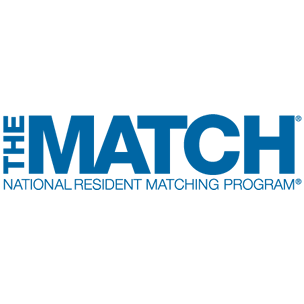Pursue strategic research and data opportunities that highlight and address critical issues within the UME-GME continuum and guide meaningful conversations about improvements to the transition to residency. The NRMP continued to deliver on its research agenda and leveraged applicant demographic data to better reveal the state of diversity and marginalization in medicine. In doing so, it established a willingness to confront the issues that challenge stakeholders’ ability to improve the transition to residency.
Profiling the Match Applicant Experience. As part of the 2022 Main Residency Match, the NRMP began collecting applicant demographic data for the first time. The decision to engage in the data collection came after a robust campaign of soliciting feedback from the community, who widely supported the NRMP as the best organization to inform the current state of the transition and expose bias and DEI status in medicine. NRMP governance and leadership recognized that the NRMP was singularly qualified to help the GME community understand the interrelationships between applicant characteristics, specialty preferences, ranking behaviors and Match outcomes. Earlier this year, the NRMP published the data for the 2022 and 2023 Main Residency Matches and the 2023 Specialties Matching Service appointment year in Tableau, data visualization software that allows viewers to generate customizable views.
With its applicant demographic data collection and analyses, the NRMP is maintaining a national focus on
-
Establishing a transition that allows the physician workforce to look like the community that they’re going to serve.
-
Leveraging applicant demographic and specialty preference data to address workforce equity, especially for underserved populations.
-
Helping the community address and generate solutions for problems that applicants, residency programs, and medical schools experience during the transition.

There is much discussion about the need for greater diversity and equity in medicine, but to achieve that objective, the origins of underrepresented in medicine must be examined.
For the NRMP, that means revealing and analyzing the applicant profile, not just along racial and ethnical lines but also gender identification, socioeconomic status, and disability. It will benefit the profession to understand how different demographic characteristics are viewed, integrated into the transition to residency process, and impact outcomes.

Advancing a Research Strategy. For the past few years, the NRMP has been focused on executing a robust research- and data-based strategy that provides meaningful analyses about issues related to the transition and disseminating data about the Match to advance knowledge and inform policy. The NRMP has achieved on that goal in several ways:
-
Transforming NRMP’s data into modernized reports that provide greater clarity and insight into the transition to residency: The NRMP has utilized data visualization software like Tableau to build new Charting Outcomes reports that are interactive and generate customizable views of data. A significant accomplishment this year was the publication of applicant demographic data for the Main Residency Match.
-
Building internal capacity to distribute more timely information to the community in the form of research briefs, white papers, and peer-review manuscripts: The NRMP published several papers for the community including the Research Brief on Virtual Interviewing that incorporated comparative data to highlight changes overtime in constituent attitudes and perspectives about online recruitment and a research brief outlining the content analyses conducted on the Applicant Survey.

-
Establishing strong partnerships with other medical education organizations to tackle critical questions about the state of the transition and recommend improvements: The NRMP ‘s research agenda addresses topics designed to broaden community understanding of important Match-related issues and processes and position the NRMP as a national thought leader about equity and transparent throughout the transition to residency. This past year the NRMP has seen the opportunity for partnership expand, suggesting a widespread consensus that collective synergy around data and research benefits the community in meaningful ways. The NRMP is partnering with AACOM, AAMC, NBME and NBOME to examine of impact of USMLE and COMLEX Pass/Fail on application and ranking behaviors. It also is working with AAMC to understand the role of preference signaling in application, ranking, and matching. More partnerships are in development.

